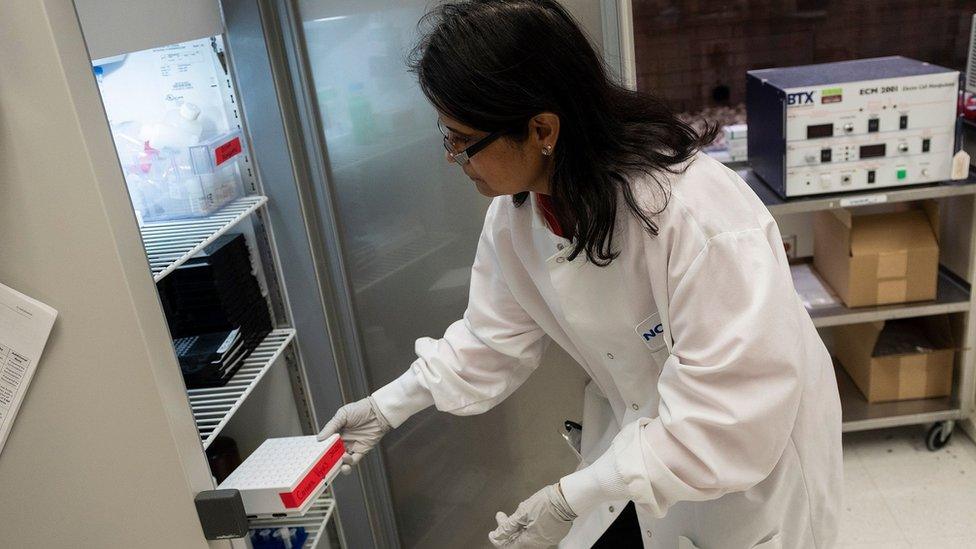Covid: Call to let Novavax volunteers have second vaccine
- Published
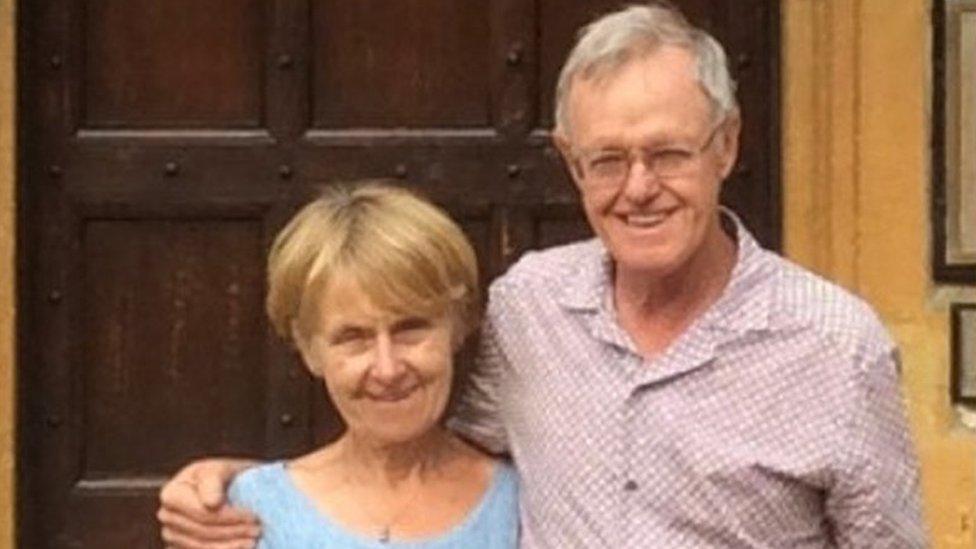
Patricia and Brian Antlett signed up for the Novavax trial as they wanted to play their part in the fight against coronavirus
Calls have been made for "in limbo" Novavax trial volunteers to be allowed an approved vaccine.
Patricia and Brian Antlett, from Wrexham, are desperate to visit family in Spain while Mr Antlett needs to go to Italy for work as an engineer.
However, they took part in trials of the unapproved Novavax - which foreign countries do not accept for travel.
The Welsh government urged trial volunteers to talk to their doctor or trial team about any issues.
The UK government's Department of Health said it would ensure thousands of Novavax trial volunteers across the UK were not disadvantaged.
However, Mrs Antlett does not believe that has been the case and they have been left "frustrated and angry".
The couple said they have been told by health officials in Wales they are not able to have a second type of vaccine - such as Pfizer or Oxford AstraZeneca - because there is no data on mixing jabs.
However, they do claim some vaccine centres in England have allowed Novavax volunteers to choose to have a second type of the vaccine.
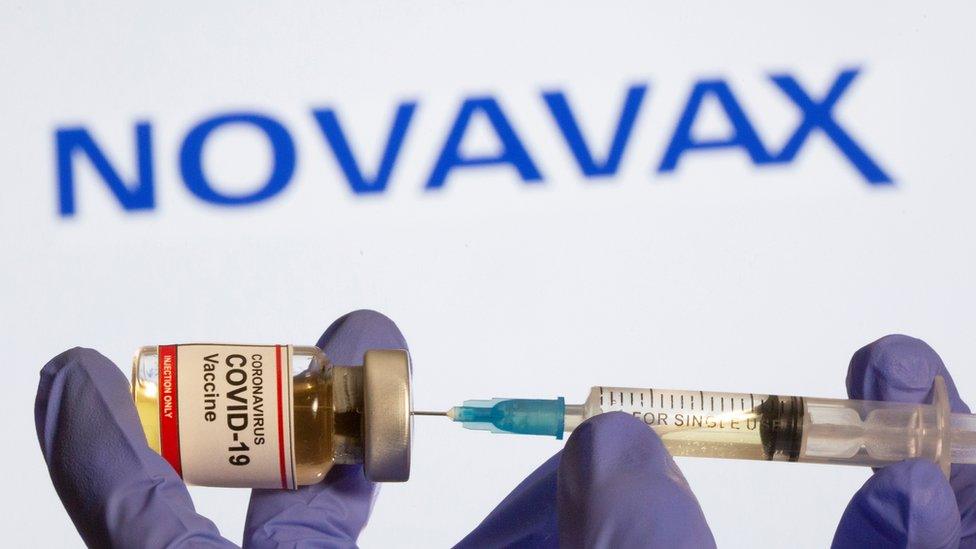
Novavax was shown to be 89.3% effective at preventing Covid in its Phase 3 UK trial
"Advice does not mean something is mandatory," said Mrs Antlett.
"In fact, if you turn the argument around, the government is strongly advising everyone to have a vaccine, but is not denying freedom of choice not to have one."
The latest advice they have received is that a Novavax vaccine is recognised for UK events but not by other countries.
"For foreign travel, it's not worth the paper it's written on," Mrs Antlett said.
"We just want a level playing field. We feel like we were misled [over the trial].
"Our GP was sympathetic, everyone is sympathetic. But all volunteers are left between a rock and a hard place, in limbo."
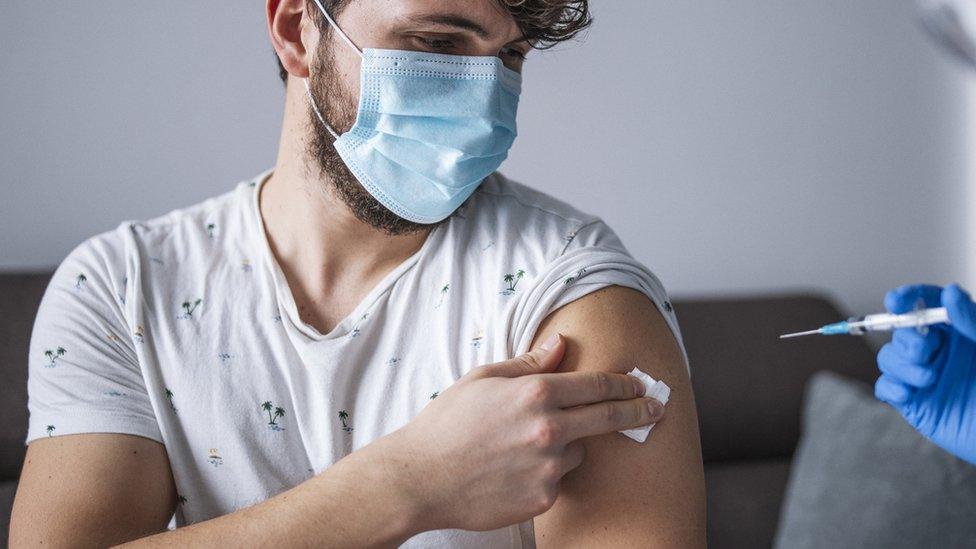
Half of Wales' population has had both Covid vaccine doses
Novavax is currently being assessed by the UK's Medicines and Healthcare products Regulatory Agency, and is subject to an European Medical Agency rolling review.
The company said it expected to file for authorisation in the third quarter of this year.
More than 15,000 people in the UK took part in the Novavax phase 3 trial, according to National Institute for Health Research, the UK government's medical research body.
In Wales, Mrs Antlett, 70, and her husband, who was 68 at the time, signed up with hundreds of others for the trials last November.
The couple said they were keen to help out in the fight against coronavirus, after being told they would not be disadvantaged and it would likely be approved in the spring of 2021.
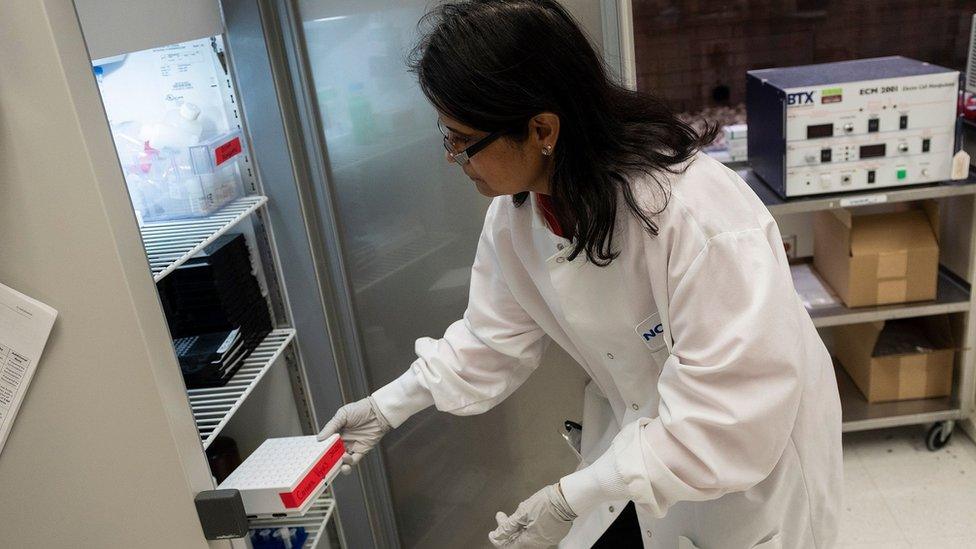
Biotech firm Novavax has labs in the US (pictured) and has carried out trials in the UK and South Africa
They each received two doses in November in the "blind trial", where half of participants received a placebo.
When the mass rollout of approved vaccines begun, they were "unblinded" and both found out they had received Novavax.
"We were pleased we both had the vaccine, as it showed we had been protected since November, and were strongly advised not to have another," said Mrs Antlett.
"At the time, it seemed like Novavax would be authorised in late April, with the talk of vaccine passports. But when we began enquiries on dates, the trial teams seemed embarrassed."
Vale of Glamorgan MP Alun Cairns called it a "national and global effort" against coronavirus and said more help should be given to Novavax volunteers.
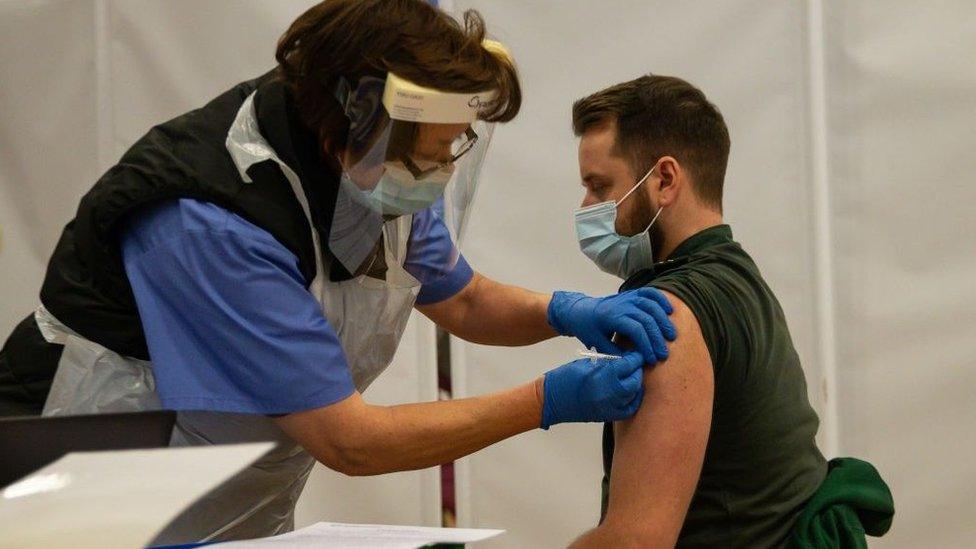
Vaccination centres across most of Wales are now open for people to walk in with no appointment
"A constituent who happened to be a nurse made herself available for the Novavax trial and was similarly blocked from travelling on a cruise later this year," said the former Welsh Secretary.
"When she contacted the helpdesk, they simply rejected her appeal."
However, Mr Cairns challenged them with a copy of an open letter published, external by UK deputy chief medical officer Jonathan Van-Tam on 11 June.
He said in it: "We believe the added risk of allowing the relatively small number of clinical trial participants to travel (in the UK approximately 40,000 people, the vast majority of whom have been vaccinated) is strongly outweighed by the benefit of ensuring that recruitment and retention into clinical trials can continue."
Mr Cairns added that following this, the company immediately accepted the validity of the Novavax vaccine.
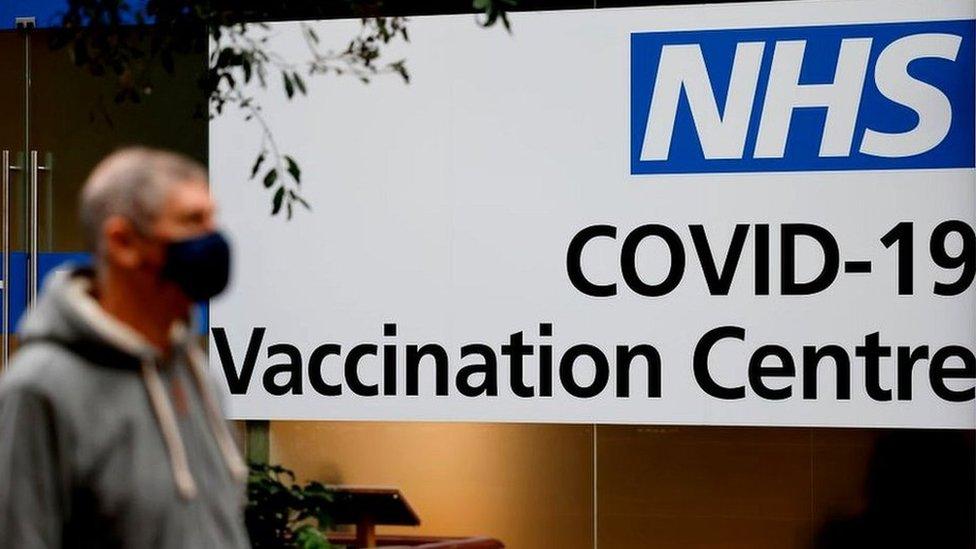
In Wales, 75% of under 50s have now had at least one jab
"It is a shame that it took an intervention from an MP," Mr Cairns said.
"All international travel organisations should be aware of the situation and not disadvantage those prepared to put themselves forward for a vaccine trial.
"This is a national and global effort against a pandemic and they should be saying thank you, not rejecting their requests."
The Welsh government said it was "grateful" to volunteers who took part in vaccine trials and other Covid treatment studies and added they "have made a significant contribution to the research effort".
"Vaccines not yet licensed but which have been given as part of a phase 3 trial are being recorded on national vaccination systems to ensure vaccination records are complete," a government spokeswoman added.
"Trial volunteers should speak to their doctor or trial team if they wish to discuss any issues relating to their trial vaccine."
The Welsh government's "strong advice" is to only travel overseas if it is "absolutely essential".
- Published26 June 2021
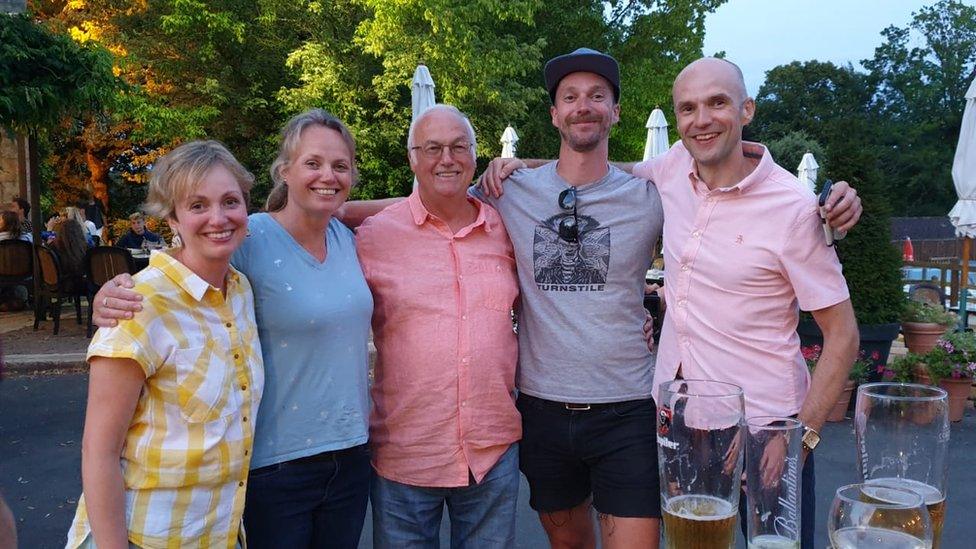
- Published29 January 2021
